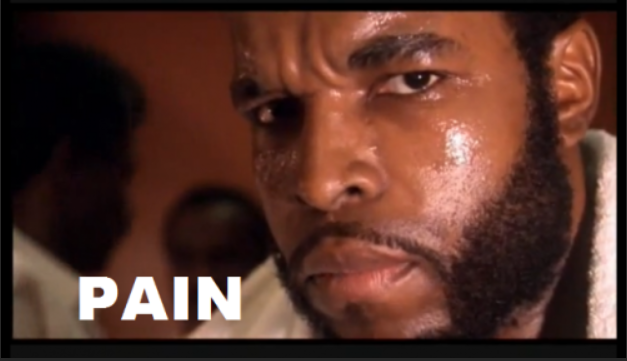Thinking Like a Millennial: How Millennials are Changing Discovery, Part Two
Editor’s Note: Tom O’Connor is a nationally known consultant, speaker, and writer in the field of computerized litigation support systems. He has also been a great addition to our webinar program, participating with me on several recent webinars. Tom has also written several terrific informational overview series for CloudNine, including his most recent one, Biggest eDiscovery Challenges Facing Plaintiff’s Attorneys, which we covered as part of a webcast on June 26. Now, Tom has written another terrific overview regarding the impact of millennials on eDiscovery titled Thinking Like a Millennial: How Millennials are Changing Discovery that we’re happy to share on the eDiscovery Daily blog. Enjoy! – Doug
Tom’s overview is split into five parts, so we’ll cover each part separately. Part one was Tuesday, here is the second part.
Understanding Millennials and How They Differ from Previous Generations
Well first, let’s ask, what exactly is a millennial? Are they really, as often stated, misunderstood job jumpers who have taken control of both the workplace and economy?
What exactly is the generational breakdown? Generational analysis is difficult and often shifting and it takes time for popular and expert consensus to develop precise breakdowns, but the Pew Research Center assesses such demographics and has come up with the following chart:
- The Silent Generation: Born 1928-1945 (74-91 years old)
- Baby Boomers: Born 1946-1964 (55-73 years old)
- Generation X: Born 1965-1980 (39-54 years old)
- Millennials: Born 1981-1996 (23-38 years old)
- Generation Z (Post Millennials): born 1997 or later (up to 22 years old)
Millennials are expected to overtake Boomers in population in 2019 as their numbers swell to 73 million and Boomers decline to 72 million while Gen X is projected to pass the Boomers in population by 2028.
The Millennial generation growth is not just from a growing birth rate. Census figures show that young immigrants also expand its ranks. Meanwhile, boomers are aging and their numbers shrinking in size as the number of deaths among them exceeds the number of older immigrants arriving in the country.
What does this mean in terms of technical usage trends? The Millennial segment may not be “digital natives” to the degree of the Gen Z population but they have grown up during the digital revolution. They’re tech savvy and saw firsthand the explosion in the use of mobile phones, social media and Internet-based information at your fingertips.
Compare that to my generation. As a bona fide boomer, I was born in 1950 in upstate Vermont. I grew up listening to a radio for my entertainment and getting my news from a paper. When TV entered my life, it came on at 4PM, went off at 11PM and consisted of two Lo VHF channels. One of which was from Montreal. At least I didn’t need to speak French to watch hockey.
Then came transistor radios. Portable data! I listened to the first Mercury launch, to the Beatles sing I Want to Hold Your Hand. To Cassius Clay beat Sonny Liston, Bill Mazeroski homer to win the World Series in the 9th. In my own room.
Next up was a car. AM radio. Better than a transistor. But I was a teenage and on AM radio there was a nothin’ goin’ down at all. Then one morning I found a New York station and I couldn’t believe what I heard at all. I started shakin’ to that fine, fine music and my life was saved by rock ‘n’ roll. FM baby. And the next thing I know I was rolling down the window and letting the wind blow back my hair on the New Jersey Turnpike in the wee, wee hours.
8 tracks, cassette players, the Internet, IPods: all of it one big wow. But technology does not present a “wow” factor for millennials and Gen Z. Rather new technology products and apps are just another channel in the cable network world of 500 channels that is their lives. A new channel appears, they try it. If they like it, they listen more. If not, switch the channel, flip the switch, try something new.
We’ll publish Part 3 – Drivers for Millennials’ Thinking Today – next Monday.
So, what do you think? Have the habits of millennials impacted eDiscovery for your organization? As always, please share any comments you might have or if you’d like to know more about a particular topic.

Sponsor: This blog is sponsored by CloudNine, which is a data and legal discovery technology company with proven expertise in simplifying and automating the discovery of data for audits, investigations, and litigation. Used by legal and business customers worldwide including more than 50 of the top 250 Am Law firms and many of the world’s leading corporations, CloudNine’s eDiscovery automation software and services help customers gain insight and intelligence on electronic data.
Disclaimer: The views represented herein are exclusively the views of the author, and do not necessarily represent the views held by CloudNine. eDiscovery Daily is made available by CloudNine solely for educational purposes to provide general information about general eDiscovery principles and not to provide specific legal advice applicable to any particular circumstance. eDiscovery Daily should not be used as a substitute for competent legal advice from a lawyer you have retained and who has agreed to represent you.









